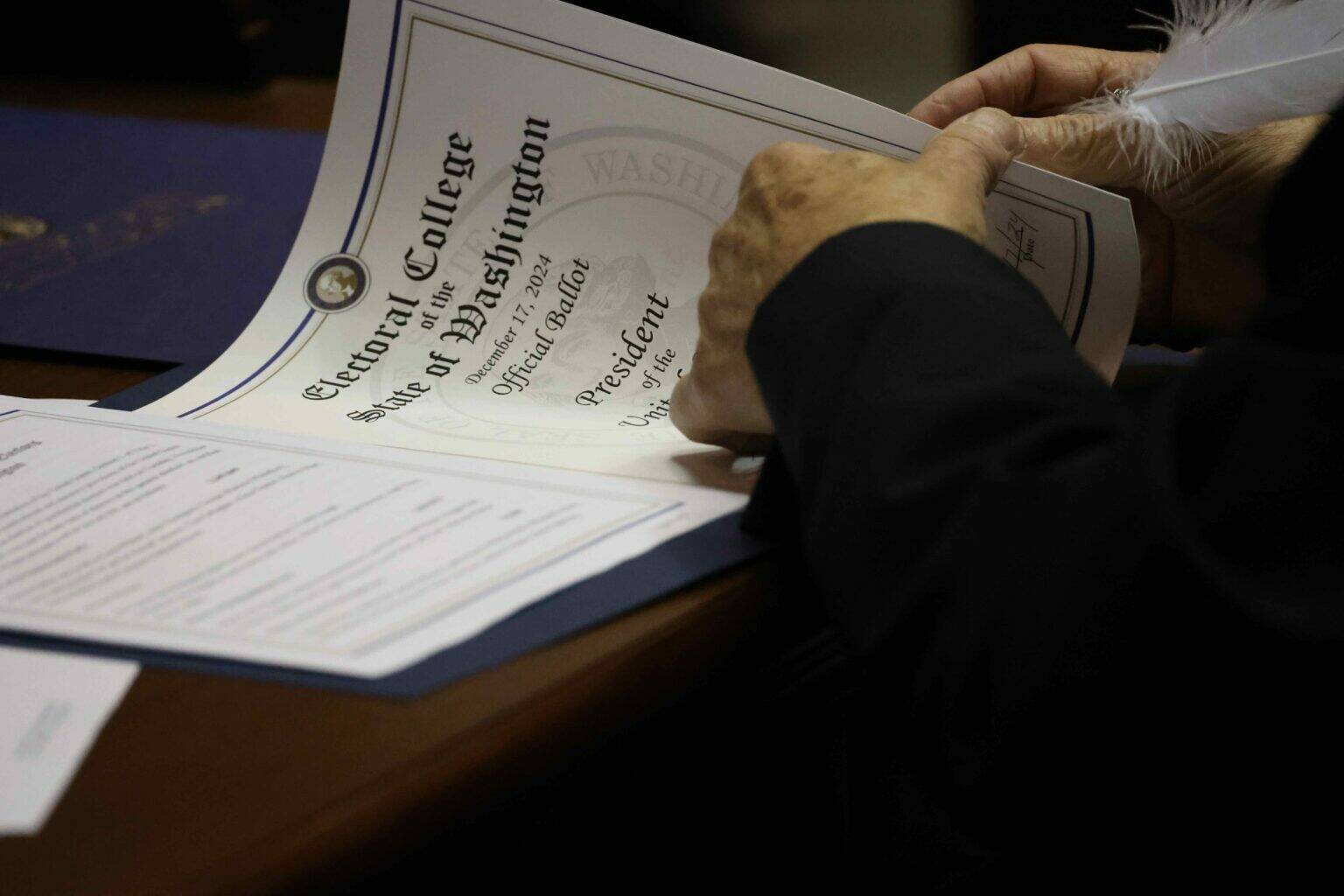Washington’s 12 electors gathered in Olympia on Tuesday and, using white feather pens to make their selections and sign their names, silently cast their votes for the Democratic presidential ticket, despite Kamala Harris and Tim Walz losing the election.
They were among the 538 Electoral College electors across the nation casting ballots for the next president and vice president of the United States. These votes will be sent to the President of the U.S. Senate — a position Harris now holds as vice president — and the National Archives and will be counted by Congress on Jan. 6.
“I am honored to be part of this peaceful transition of power,” said elector Sharon Mast. “This is the expected outcome of an election and is fundamental to our democracy. The peaceful transfer of power as a solemn moment, even if I would have preferred that the power would be transferred elsewhere.”
The Electoral College is a process where political parties select a group of people to cast votes for the president based on the state’s election results. Because Washington voters backed Harris, the state’s slate of Democratic electors were the ones participating on Tuesday.
Washington’s 12 electoral votes mirror the number of lawmakers representing the state in Congress. A candidate must win 270 of the 538 total electoral votes to become president.
Tuesday’s ceremony is a key step in the transition of presidential power.
This was a process tarnished in 2021 when, on Jan. 6 that year, former president and now President-elect Donald Trump’s supporters stormed the U.S. Capitol as lawmakers were counting electoral votes to confirm President Joe Biden’s win.
“That stain of January 6th is a reminder how fragile democracy is,” Gov. Jay Inslee said during Tuesday’s proceedings, which took place in the state Senate chambers. The outgoing governor added that democracy is only as good as the people who defend it.
Lona Wilbur, one of three Native American electors in Washington, reflected on the struggles Native Americans have faced historically in securing and exercising voting rights.
Growing up, she said, her grandparents taught her the importance of voting and choosing someone who will represent tribal communities, protect treaty rights, and bring services to people.
Other electors like Tara Gallagher and Justin Camarata, criticized the Electoral College itself, calling it a flawed system.
“I wish we weren’t all here,” Gallagher said, “I think we should abolish the Electoral College.”
“It is time to allow one person, one vote, to extend to presidential elections,” she added.
Gallagher criticized how the popular vote winner has not always won the presidential election because of the Electoral College and how the system drives candidates to often focus on just a handful of swing states.
“I think it is really important to note that the Electoral College was formed as a means of disenfranchisement,” Camarata said. “It was formed as a way to respond to the emancipation of human beings that were in slavery and as we think about the future and the future of democracy, it is really important that we acknowledge that even as we participate in it.”
Washington State Standard is part of States Newsroom, a nonprofit news network supported by grants and a coalition of donors as a 501c(3) public charity. Washington State Standard maintains editorial independence. Contact Editor Bill Lucia for questions: info@washingtonstatestandard.com. Follow Washington State Standard on Facebook and Twitter.





